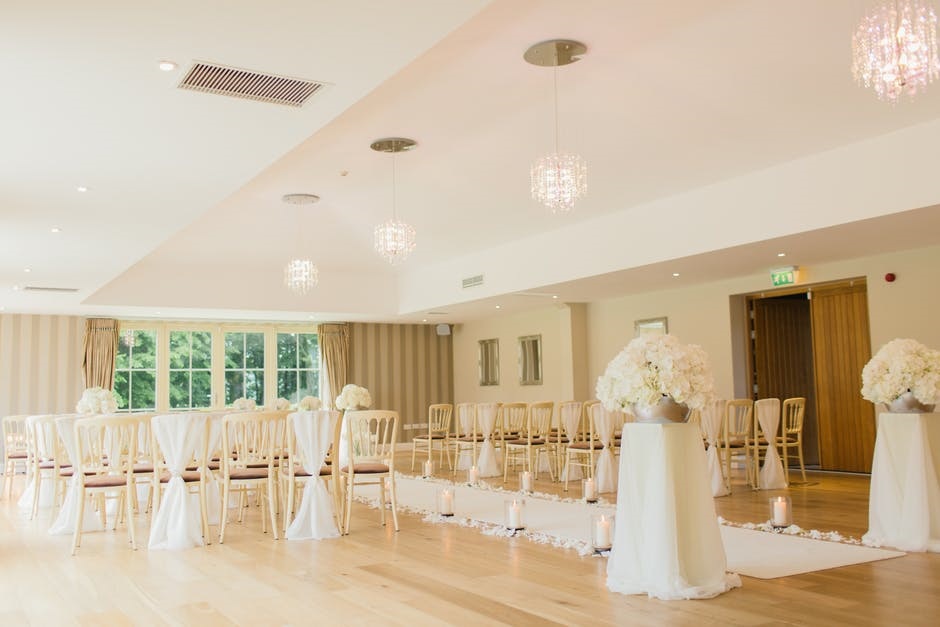From Dream to Reality: Starting Your Own Event Venue Business
Whenever we have something we want to celebrate in life, what do we do? Throw parties, of course!
Think about it: whether it’s your birthday, an anniversary, graduation, or even a work milestone, we gather everyone up, rent a space, and go wild.
This means there’s money to be made in the event venue realm.
If you’ve always wanted to start your own event venue business but didn’t know where to start, then keep reading. We’ll give you a thorough guide to make your dreams a reality!
Identify Your Target Market
Although party animals come in all different shapes and sizes, it’s important for you to narrow things down. If you try to spread yourself too thin, you’ll end up attracting no one, as it’ll be a jumbled mess at your venue.
So first, think about what type of events you want to cater to. Do you want to serve weddings, or do you prefer corporate functions and conferences? Or perhaps casual social gatherings are more your thing.
Whatever it is, you need a clear idea of your target market before you proceed, as it’ll shape all your other actions.
If you’re having trouble, assess the demand in your local market. For example, if people are complaining about a lack of nice wedding venues, there’s your in.
Analyze the Competition and Create a Business Plan
Whether you’re entering a saturated market or you’re filling a niche, it’s vital that you analyze your competition. You want to see what they’re doing right, take that, and do it even better. You’ll also want to avoid their mistakes.
Check out what offerings existing event venues have, as well as their unique selling points and pricing.
Now create your small business plan. This should include your goals, marketing strategy, financial projections, and operational plans. This will serve as a roadmap for your company.
Find a Suitable Location
You know what they say: location, location, location. You can pick a cheap property, but if it’s out of the way, then people aren’t going to be motivated to choose you when competitors are more centrally located. This is especially true if your client base will mostly be from out of town, such as for weddings or conferences.
The property should ideally be accessible, have ample parking, and be close to public transportation options. It should align with your target market and their needs.
The space should be large enough that people won’t feel claustrophobic inside. Don’t forget to factor in room for necessary equipment too.
Secure Funding
You probably can’t fund the business on your own, so you’ll either have to take out loans or find interested parties to invest in your idea. This is where your business plan will come in handy, as you can present them with a transparent view of what you plan to do with the borrowed money.
Outline what startup costs you’ll need to be covered, such as rental fees, renovations, furniture, equipment, and marketing expenses.
Register Your Business
There are several legal structures available, and they all have their pros and cons. If you aren’t sure which are best for your situation, it’s wise to consult with a lawyer and/or accountant. They’ll help you narrow down your options.
Once you’ve made a decision, you’ll have to register your company with the appropriate authorities. Again, consulting with professionals can be a huge help, as they’ll have the experience and knowledge to make the process easy and smooth.
Get the Necessary Permits and Licenses
Every municipality will have its own rules on what you need before you can properly operate an event venue business. Do your due diligence and find out what permits and licenses you have to obtain before opening your doors. Otherwise, you risk being fined or even shut down.
Depending on what you wish to have at your venue, you may have to apply for additional permits. For instance, if you want to offer catering services, you’ll most likely have to apply for a food service license. And if you want to serve alcoholic beverages, you’ll need a liquor license.
Build Relationships and Networks
Building relationships and networks with the local community will only benefit you in the long run. So make connections with event planners, caterers, decorations, photographers, and other professionals in the event industry. You can speed up this process by attending industry events and joining relevant associations.
In addition, you can collaborate with local businesses. Partnerships with hotels, restaurants, and transportation services make for mutually beneficial relationships. Together, you can offer comprehensive services at discounted prices.
Get the Right Equipment
For your target audience to have an excellent time in your venue, you’ll need the right equipment and tools.
The basics include comfortable chairs, tables, stools, etc. Investing in items like quality sound systems and screens can be worth it too.
You’ll also want the latest in technology, such as event management software and a terrific POS for your employees.
Market and Promote Your Venue Rental Business
Develop a distinctive brand identity so you’ll attract your target audience. You can then utilize both online and offline marketing channels to promote your venue. For example, you can take advantage of social media, local directories, and print advertising.
Measure your results, and keep testing and tweaking your strategies to keep your campaigns going strong.
Get Started on Your Event Venue Business
Owning an event venue business can be exciting, especially if you feel like this is your calling. It probably won’t be easy, but it’ll definitely be rewarding.
Plus, if you follow our tips, you won’t go wrong. By doing your research and planning ahead, your events company will have the best chance of thriving.
Keep reading our blog page if you want more savvy business advice.



